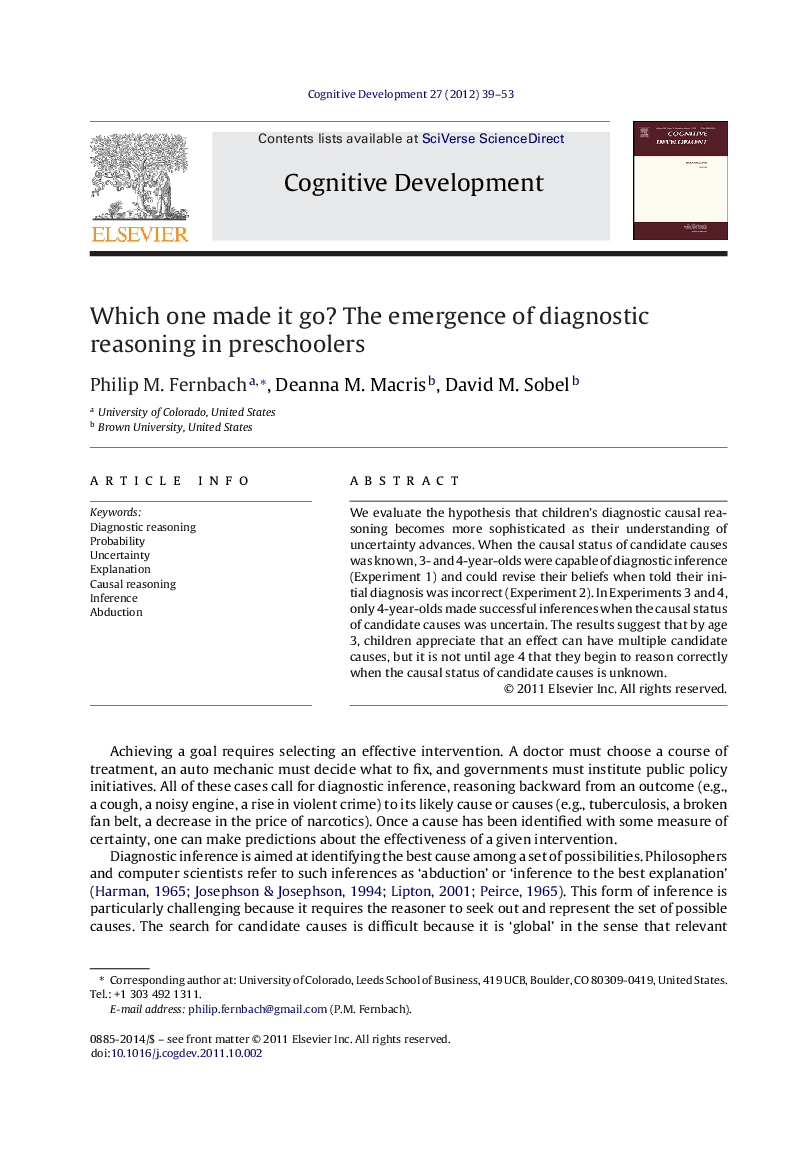| Article ID | Journal | Published Year | Pages | File Type |
|---|---|---|---|---|
| 916593 | Cognitive Development | 2012 | 15 Pages |
Abstract
We evaluate the hypothesis that children's diagnostic causal reasoning becomes more sophisticated as their understanding of uncertainty advances. When the causal status of candidate causes was known, 3- and 4-year-olds were capable of diagnostic inference (Experiment 1) and could revise their beliefs when told their initial diagnosis was incorrect (Experiment 2). In Experiments 3 and 4, only 4-year-olds made successful inferences when the causal status of candidate causes was uncertain. The results suggest that by age 3, children appreciate that an effect can have multiple candidate causes, but it is not until age 4 that they begin to reason correctly when the causal status of candidate causes is unknown.
Related Topics
Social Sciences and Humanities
Psychology
Developmental and Educational Psychology
Authors
Philip M. Fernbach, Deanna M. Macris, David M. Sobel,
